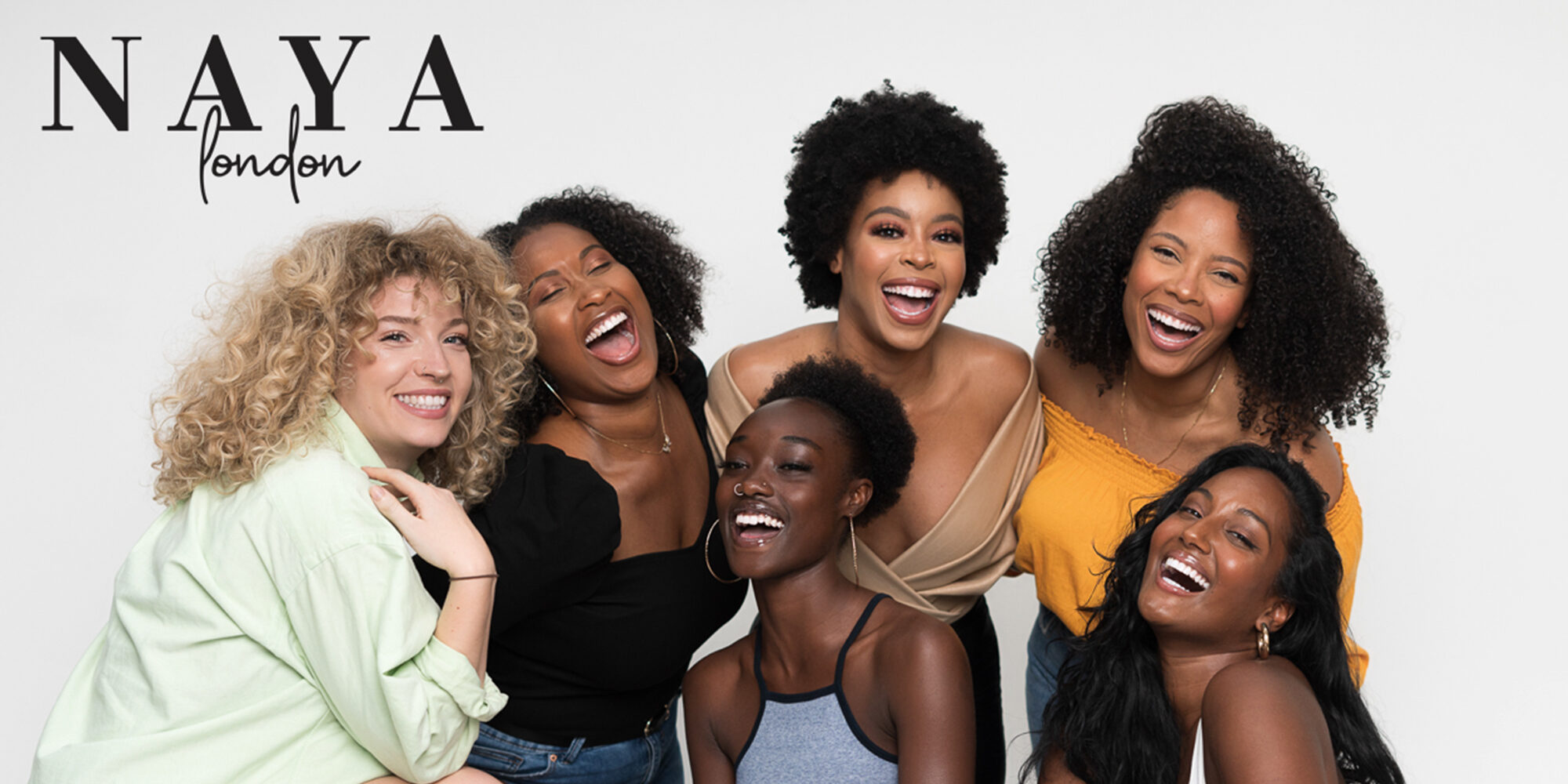
When The Pandemic Hit, I Had To Transform My Salon Distribution Business. Here’s How I Did It.
On Saturday, salons reopened in the United Kingdom for close-contact services after being in limbo due to stop-start measures by the British government following their closure in late March. The impact of the reopening can’t be understated. The British Beauty Council estimates the beauty business pours 28 billion pounds or almost $37 billion annually into the U.K. economy and is responsible for 1 in every 60 jobs in the nation.
When it shut down, Naya London, a salon products distributor that’s served around 700 salons since it started 14 years ago, was in a severe pinch. If founder Vanessa Fernandes didn’t act fast, the business could’ve been doomed. She did act fast and turned Naya London into an e-commerce destination showcasing brands such as Flora & Curl, Camille Rose, Skin Gourmet and Mielle Organics. “It was no longer about buying products from A to get them to B, but it was about working with brands that had an ethos behind them,” says Fernandes, who is also launching a digital platform aimed at salons. Here, she recounts how she pivoted Naya London to stick around during the pandemic and beyond.
I come from a diverse background. My mom is half Black, half white, and my father is half Black, half Chinese. The Chinese part of my family is from Macau near Hong Kong. Migration brought all my grandparents to Guinea-Bissau, a tiny little country next door to Senegal. My grandfather on my mom’s side was a white man that went to the African colonies with his granddad to work at the age of 17 and, then, met my grandmother. From my dad’s side, they were a family of fisherman from Macau and, apparently, they did something bad there, got kicked out and went to the African colonies. That was the story told to me, but it could also be that they chose Guinea-Bissau because it was very rich for fishing.
I was born in Portugal, and I lived for four years in Guinea-Bissau, but we had to flee because of the civil war. When I was 10 years old, I woke up to bombing and, within a week, I boarded a vessel to go to Portugal. I stayed in Portugal for another three years and, then, came to the U.K. We are talking about 21 years ago, but, when I came to the U.K., I was used to shopping Brazilian products that catered to mixed consumers. If you were a Black woman in the U.K., there were only Asian shops that sold American cosmetics for Black women. I found that very strange. At 19, I decided I would create a business to supply hair salons with products that catered to all hair types. I started the business in 2006. At that point, it wasn’t called Naya London. It was called Beleza Brazil, and I rebranded as Naya London afterward. Naya is my daughter’s name, and I wanted to name the business after her.
I ended up selling to white salons that catered to Black hair. I found it difficult to cater to Black women because they were buying from Asian shops. Up until COVID, I had been supplying salons. I have had clients that have been with me for about 10 years. COVID came, and it completely rocked our world. I hadn’t been taking the retail side of the business seriously. We had a basic Shopify site, and we sold on Amazon. We did OK on Amazon, especially in places like Germany, Spain and Switzerland, where there are populations of Black people, but not shops for them. They ended up shopping on Amazon. Most of our income came from supplying salons, and all the salons were shut down for months. Literally, our business was at a standstill.
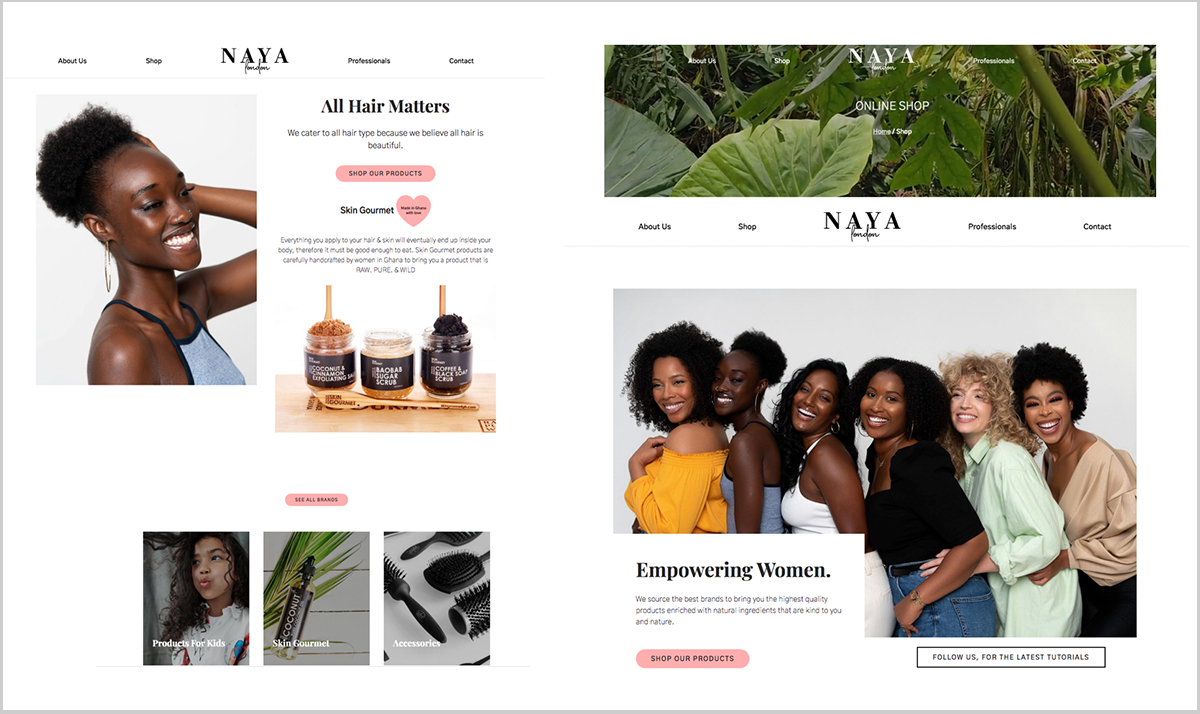
I got a little bit into desperation mode, and I felt I had to do something and do it quickly. Otherwise, I knew I wouldn’t be able to survive. The online market was booming, so I knew the only way I was going to salvage my business was to start online to sell to end consumers. So, I invested in getting a website done, and I reached out to Black-owned brands. There was a lot of publicity around different brands, so that made it easier to identify Black-owned brands. I kept getting the response, “We are not looking for new retailers.” I felt that, as a business owner, being able to do business during COVID was a blessing. Why would someone turn down money? It took me a while to realize that they don’t have stock.
It made me realize that one of the things we need to do more as Black people—and this is not just within the beauty industry—is be more open about talking about money. As a young Black woman, my parents never taught me about money. I was only told we don’t have enough of it, but we had to pretend to others that we did. I feel that is the mentality a lot of these businesses have. I would be happy to say, “I will give you 50% of the money and, once you get the product to me, I will pay you the other 50%.” I did that with two brands, and I was happy they were humble enough to have an open conversation with me that’s going to benefit both parties.
“Maybe having been a child of war, my instinct is to come up with a solution to surviving this rather than sitting and waiting for it to go away.”
Before COVID, everything had been face-to-face with my clients. They were used to dealing with me personally, and that made it difficult to expand the business. Customers are now not expecting to have what we had until COVID because they realize the world has changed. Before, whenever a new product was introduced, my team and I went to salons to do product demos. That took two to three hours per salon. Now, we are doing that online. Before, if I said I wanted to do it online, they would say, “No, you have to come in.” Now, it’s not even up for discussion. It’s normal to do it online.
We’ve launched the online shop, and we are about to launch a professional platform that will allow salons to access everything I had done on a face-to-face basis. Because I’ve dealt with salon managers and owners for so long, I have been able to create something with them in mind. On the platform, they can see reviews from other stylists; they can view and pay their invoices; they can do online demos; they can read brochures; and they can get samples. Literally, everything they’ve been messaging me on WhatsApp for, they can do it online.
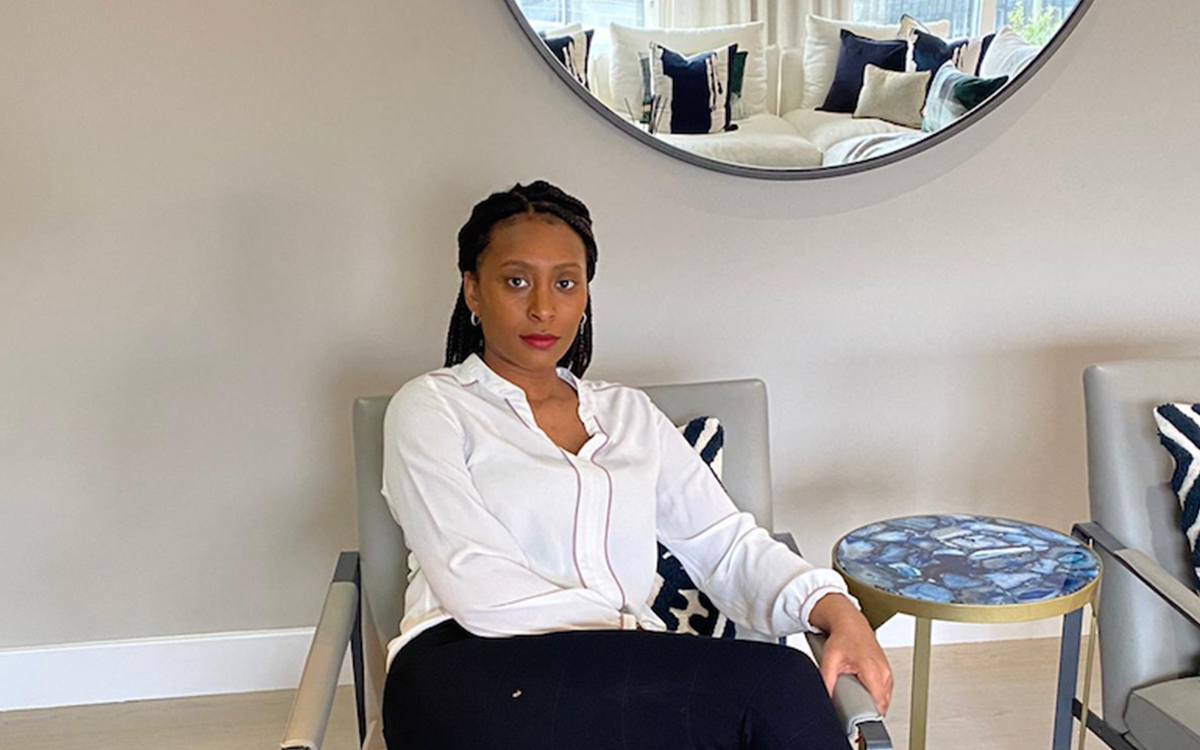
Salon owners are really scared to place orders because there are rumors that we will go into lockdown again. I have a feeling that, by the time we come to Christmas, we might go into a second lockdown. In a way, I’m kind of seeing it as a war. I doubt we will see a war like World War I or World War II, but this is what war looks like now. Maybe having been a child of war, my instinct is to come up with a solution to surviving this rather than sitting and waiting for it to go away. I don’t feel like it’s going to go away anytime soon. If online is the way forward, I want to make sure my business has an online presence. I have been running ads, working on SEO, and working with bloggers and influencers.
Obviously, I’m not going to neglect the salons, but I’m not marketing to salons at the moment. Instead, I’m offering support. As a business owner, as soon as you put profits over people, you go down a negative road. Even though, as a business, I’m struggling, I’m trying to give back as much as I can. I have given all my clients a longer amount of time to pay for their invoices. I sometimes pick up the phone not to talk about business, but to ask how they are doing. If I didn’t have a personal relationship with my clients, it would be easy for them not to come back to me after all of this.
“With the Black Lives Matter movement, we have become more vocal about our rights and are standing taller. For too long, we have been patient.”
Initially, the business was not generating enough money for me to pay everyone’s salaries, and the whole team was on furlough. Once we had a date for salons to reopen, I decided to keep half of the team on furlough, and the other half of the team would come back. The way I see things going is that salons may not be busy in October. So, we are starting to have difficult conservations now. We might have some work part-time and share roles. Most people would prefer a part-time job over no job, and everyone has been really supportive. There is none of, “This is not my role.” The team spirit has been really beneficial to the business.
For the half of the team coming in to work, I have offered to pay extra money to support their childcare. Most of my team is women, and most are mums like me. Working from home during lockdown has been a complete nightmare. Now that we only have half the workforce, I really need everyone to be giving 100% and, if someone is worrying about childcare issues, they won’t be able to focus on their work. Coming out of this, we are going to be looking more like a tech company. We are going to be running an e-commerce website and a lot of our salon services are going to be automated, but I don’t ever want to remove the personal touch.
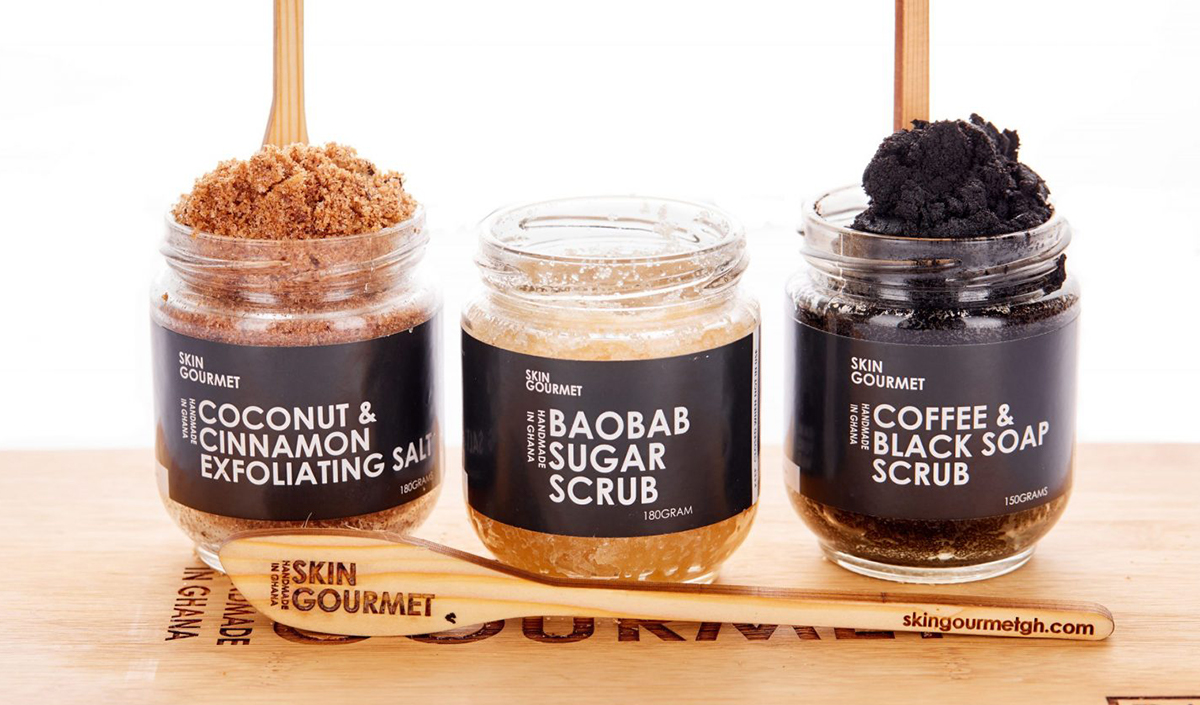
Black women spend six times more on our hair than any other race, but we have really been disrespected as consumers. I have been making a lot of noise in the industry in the U.K. How can brands cater to Afro hair when there has not been enough research done to truly understand the nature of Afro hair? How can you cater to someone you don’t truly understand? With the Black Lives Matter movement, we have become more vocal about our rights and are standing taller. For too long, we have been patient. We have been patient with the hair industry. You know what? Enough is enough. This is our time now.
We are becoming more aware of what we are consuming, and that’s why you see the movement of supporting Black-owned brands. Some of these brands might be small, but there’s a woman behind them working in her kitchen who has really come up with a solution that works for her hair and all her friends’ hair. She might have spent more time researching Black hair than the big brands. I want to be a part of the revolution.
I changed the name of my business about five years ago to Naya London, not only as a tribute to my daughter, but also because her name means purpose. To me, the message is that, as humans, we all come into this world with a purpose. When my daughter was born, the way I saw the business and myself as a woman changed. I grew up suffering from a lot of racism in Portugal in the ’90s, and I was very insecure about my hair, body and skin color. It breaks my heart all the times my hair was relaxed when I was a child. Once I became mother to a girl, I wanted to deal with those insecurities to raise my daughter stronger and for her not to have to go through the same struggles I did. So, I’m building Naya London as a space for women to talk about these issues and empower each other. That’s more important to me than becoming the next Amazon.

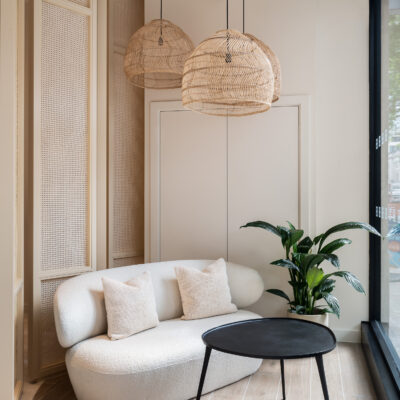
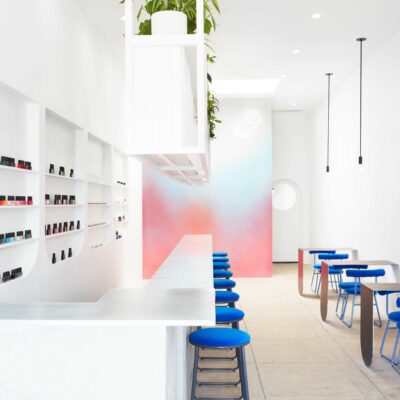
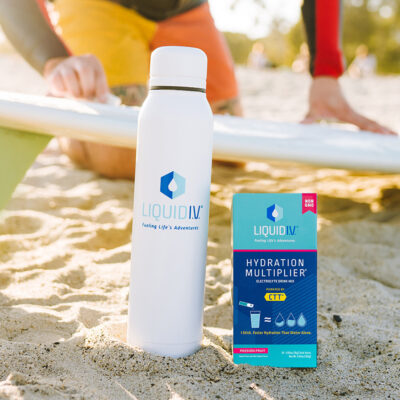

Leave a Reply
You must be logged in to post a comment.